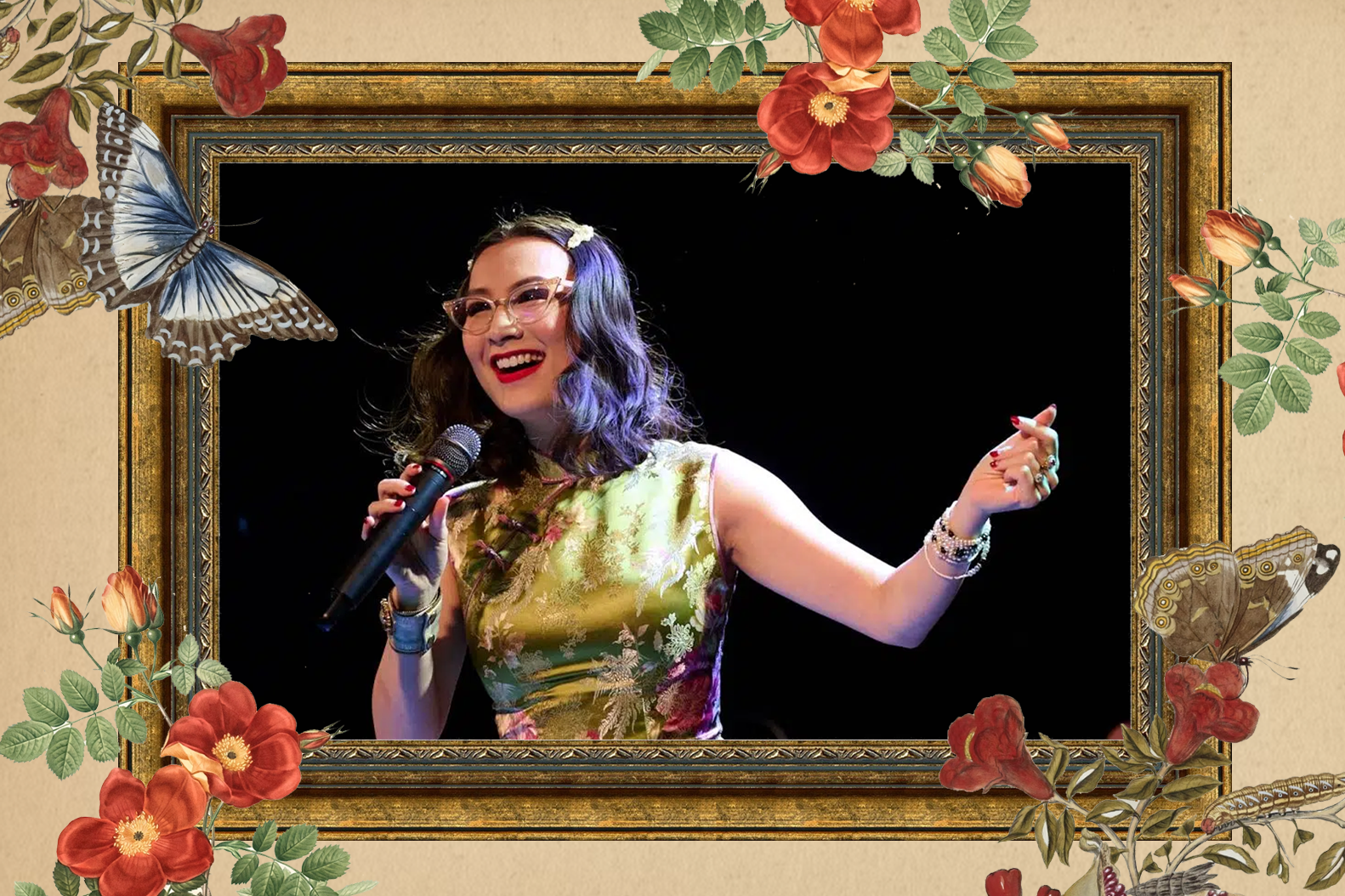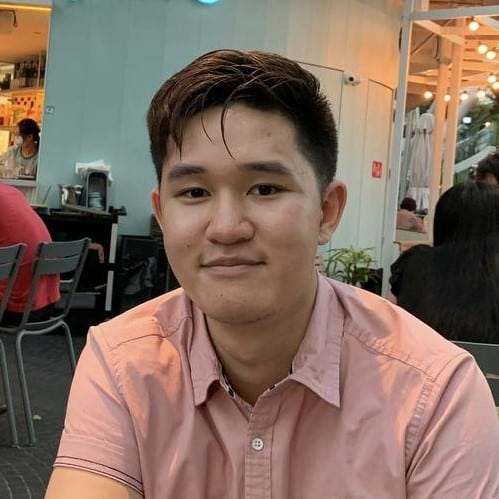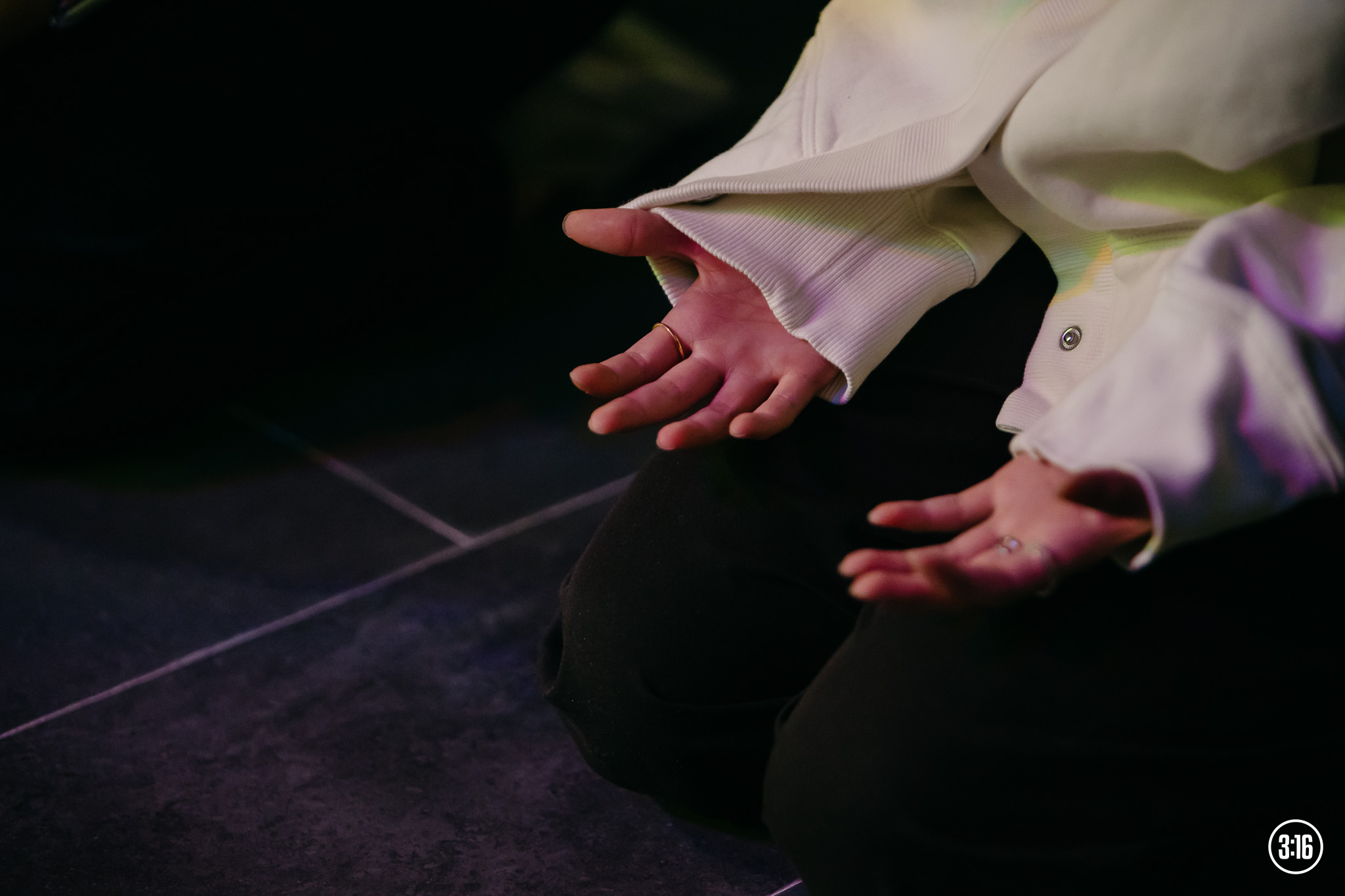With her cat-eye glasses, retro makeup and vintage dresses, it comes as little surprise that jazz singer and songwriter Miss Lou named her first album Glamour Vintage Songbird.
Released in September 2017, the album catapulted her onto iTunes charts across the region. It reached #2 in Vietnam and #4 in Singapore.
In that same year, she got to play her songs for Grammy Award-winning producer David Foster in a one-on-one mentoring session.
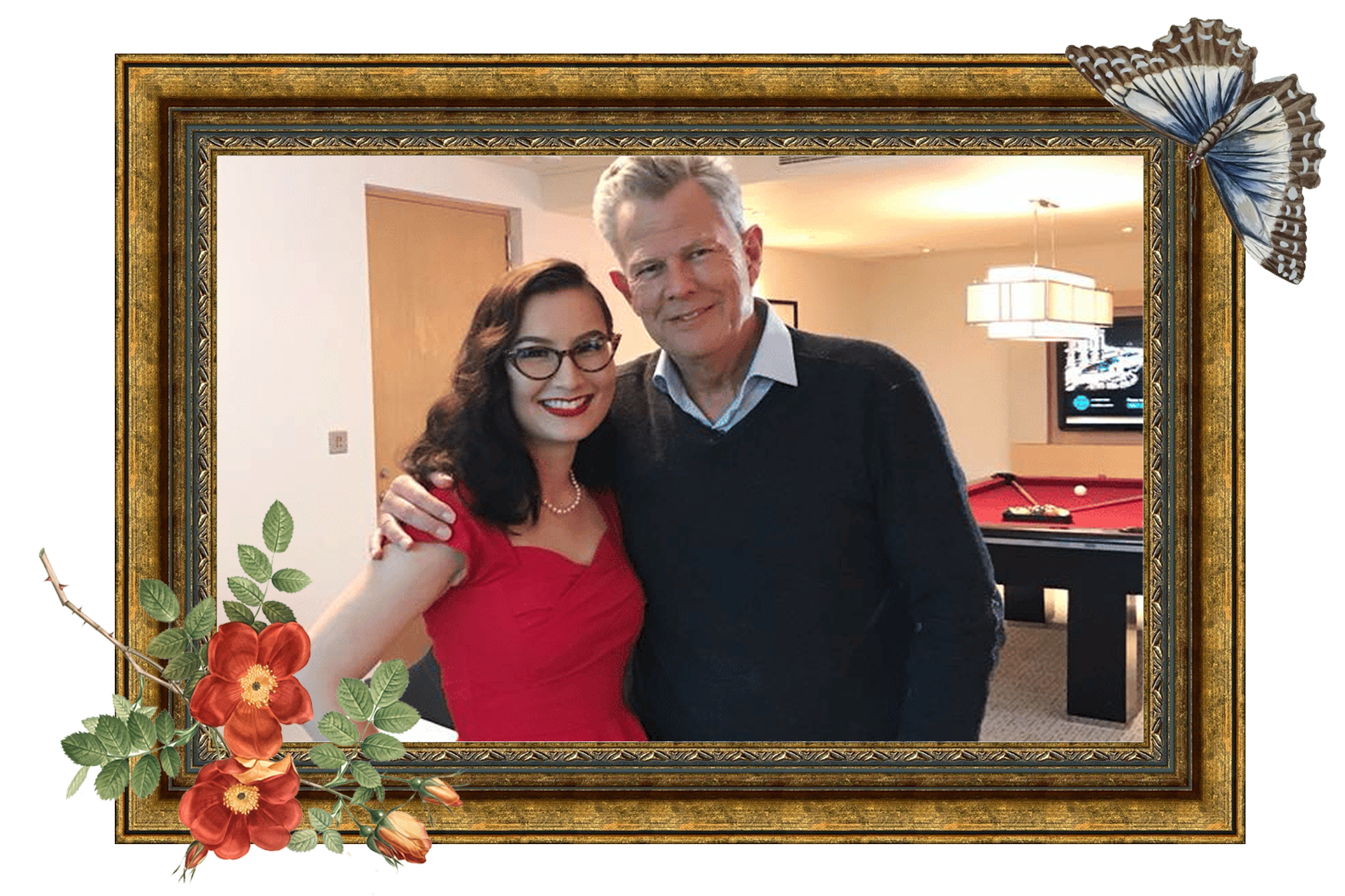
Onstage, Miss Lou, whose full name is Lou Peixin, oozes charisma and confidence.
But behind the scenes, Peixin, now 29, struggled for many years with a deep insecurity that stole her joy.
Proving naysayers wrong
Peixin’s dreams of becoming a singer took shape in her first year at Singapore Management University (SMU).
Soon after signing up to sing with the jazz band at another university, she received a Facebook message from a friend, asking if she would like to perform at a wedding.
“Singing for me started off as a side hustle, where I could earn a bit of income,” Peixin said.
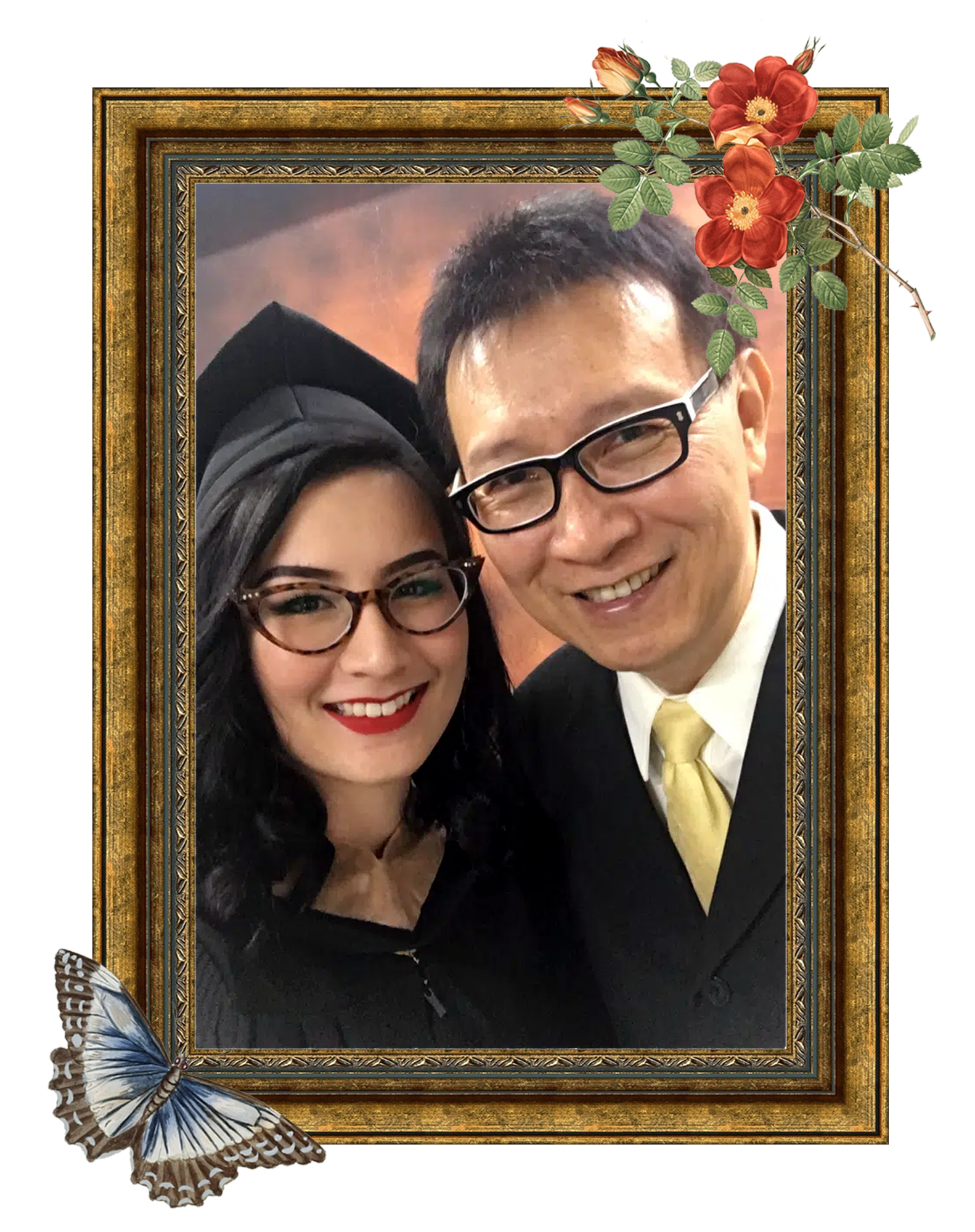
But after graduating with a degree in business management, Peixin wanted to make a living through music.
However, she didn’t receive the support she expected.
“Many people questioned my ability to make a living off music and make it my career,” she explained.
In response, Peixin felt even more driven to “prove all of them wrong”. So she started saying “yes” to every paying gig that came by.
“Success in numbers was the way I sought validation. I believed my worth as a person was based on that.”
However, her obsession with wanting others to watch her succeed came at a price.
Peixin would beat herself up if her social media postings didn’t gain the number of likes or views she desired.
“Whenever any of my posts did badly, I assumed the worst — that there must have been something wrong with me.
“Success in numbers was the way I sought validation,” Peixin admitted. “I believed my worth as a person was based on that and on what people thought of me.”
In actuality, Peixin’s search for validation in music was rooted in questions she pondered for years as a child.
“Why am I here?”
Growing up, Peixin often wondered about her true purpose on earth and the point of her existence.
“I’d always ask myself, ‘Why was I born here in Singapore?’, ‘Is there a reason I’m alive?’, ‘What am I supposed to accomplish?'”
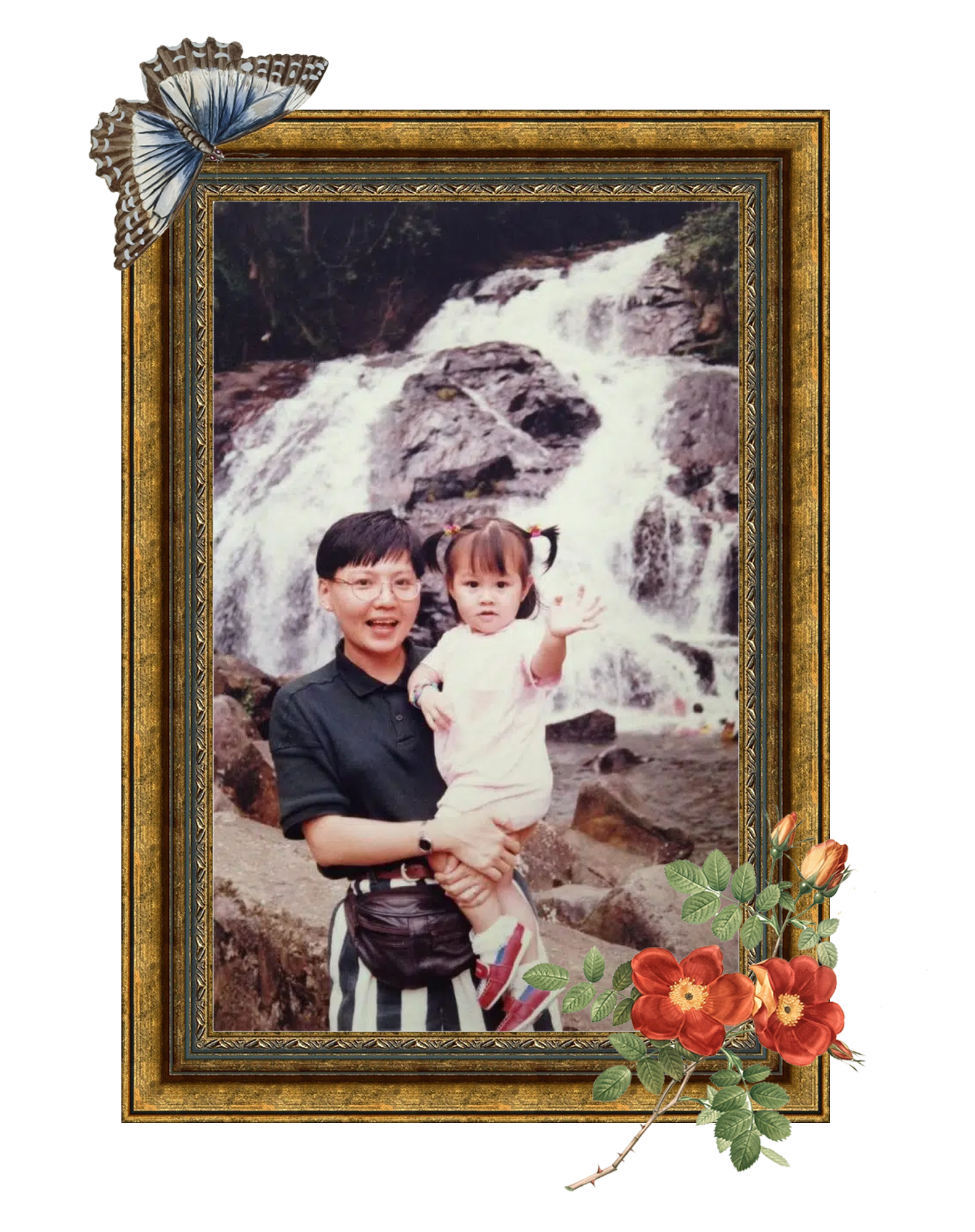
Such existential questions led Peixin to an even bigger one: “Is there a God?”
On one hand, she always suspected that a higher power was behind the events in each of our lives.
On the other, she thought of herself as a logical thinker.
She wondered: “How can people believe in a God they can’t even see?”
An early encounter
During secondary school, Peixin remained undecided about the existence of God.
But one day, amid her exam stress, she cried out to God for help.
“I prayed, ‘God, if you are there, help me get through this exam, take away my stress.'”
To her surprise, she immediately felt a physical weight lifted from her body as her stress drained away.
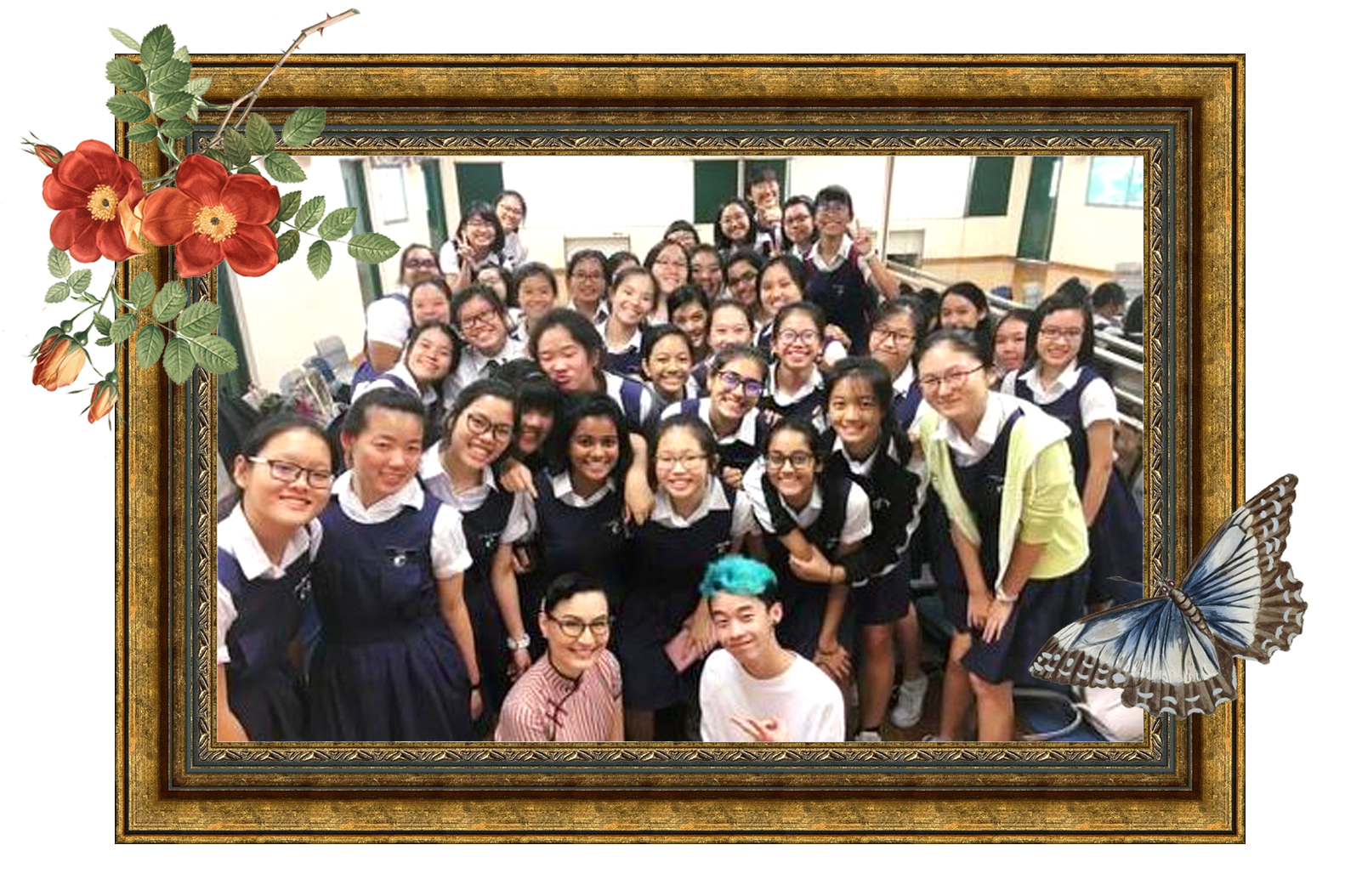
The unexpected experience left a lasting impact on Peixin. But it wasn’t enough to make her believe in the Christian God.
“I couldn’t explain it at that time or know what it meant. But it caught my attention,” she said.
Key(boardist) to her heart
Later, at one of her earliest live shows, Peixin met keyboardist and saxophonist Daniel Chia.
Impressed by her singing, Daniel introduced her to more paid opportunities to perform.
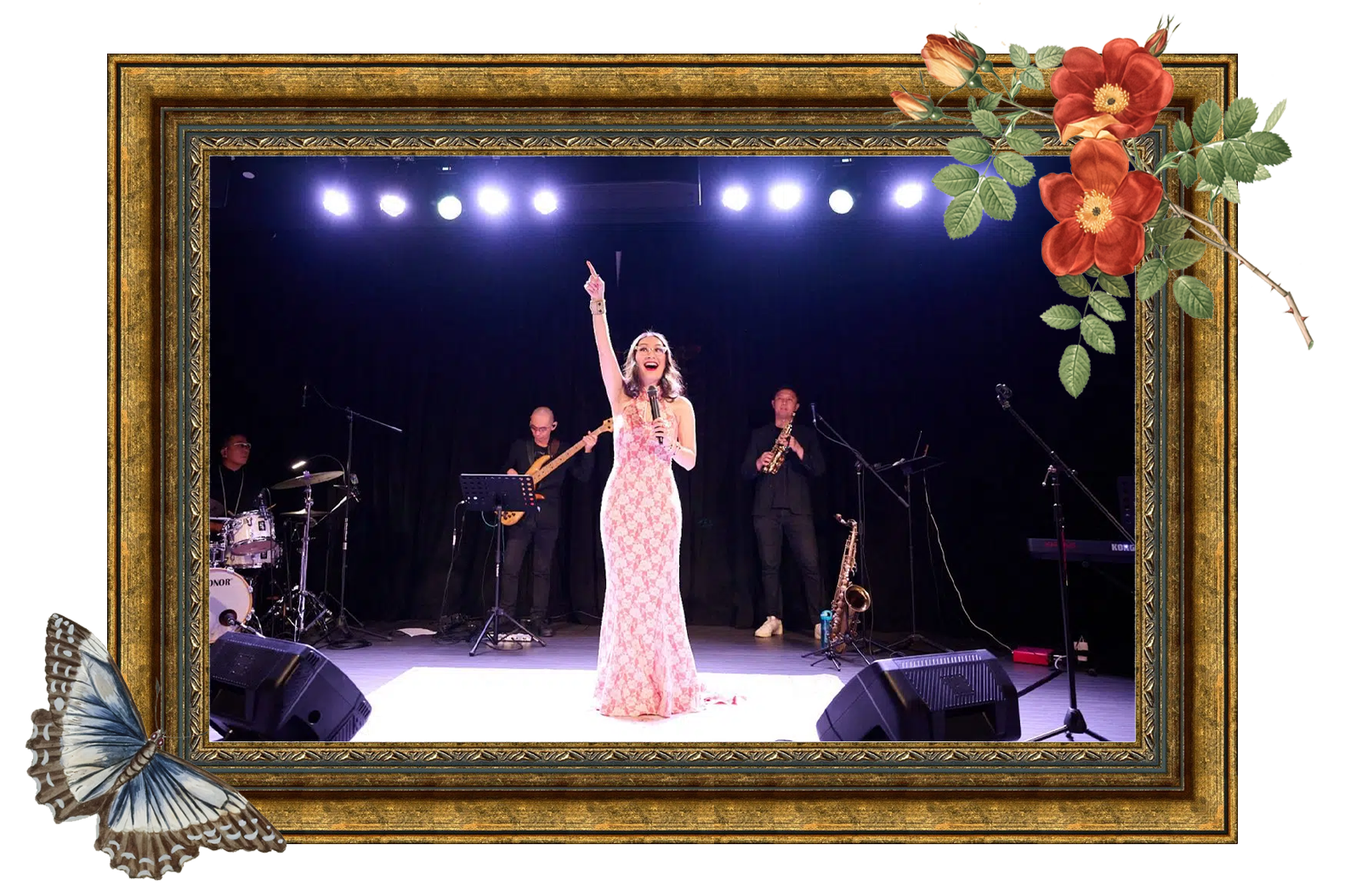
“Daniel was really unlike others I’d worked with,” shared Peixin. “He was always very gentlemanly. He walked me to the bus stop after rehearsals and offered to give me a lift to gig venues.”
She was impressed that Daniel didn’t do these things simply to impress her.
Instead, she noticed how Daniel was consistently kind and generous to all the people they performed with.
The two of them clicked instantly. Their friendship would eventually blossom into something more.
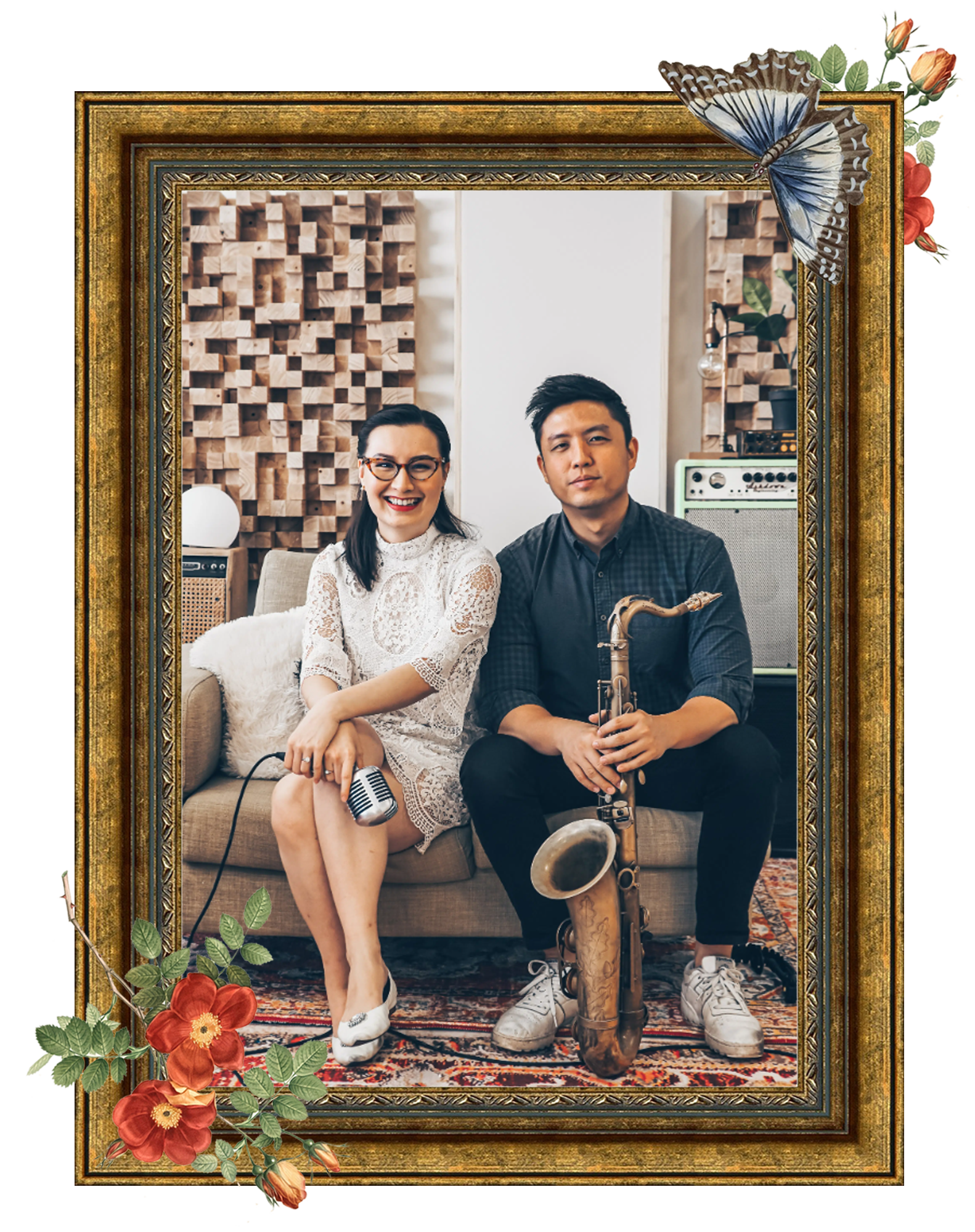
Daniel’s Christian faith also stood out to Peixin, who was a “searching agnostic”.
“I thought to myself, ‘If his faith played a part in him being the great and genuine person he is, maybe this whole God thing deserves a second look.'”
Raised in a family of freethinkers, she was often told to be wary of “opportunistic Christians” who only wanted to “preach to you in your most vulnerable moment”.
Yet, Daniel was so different from the stereotype.
“He never once pressured me to believe by asking me to read the Bible or anything like that,” she said.
She decided to go to church with him in 2015.
“All he said to me was, ‘I may not be able to answer all your questions, but maybe you’ll find what you’re looking for there.'”
Out of curiosity, Peixin attended cell group meetings with Daniel.
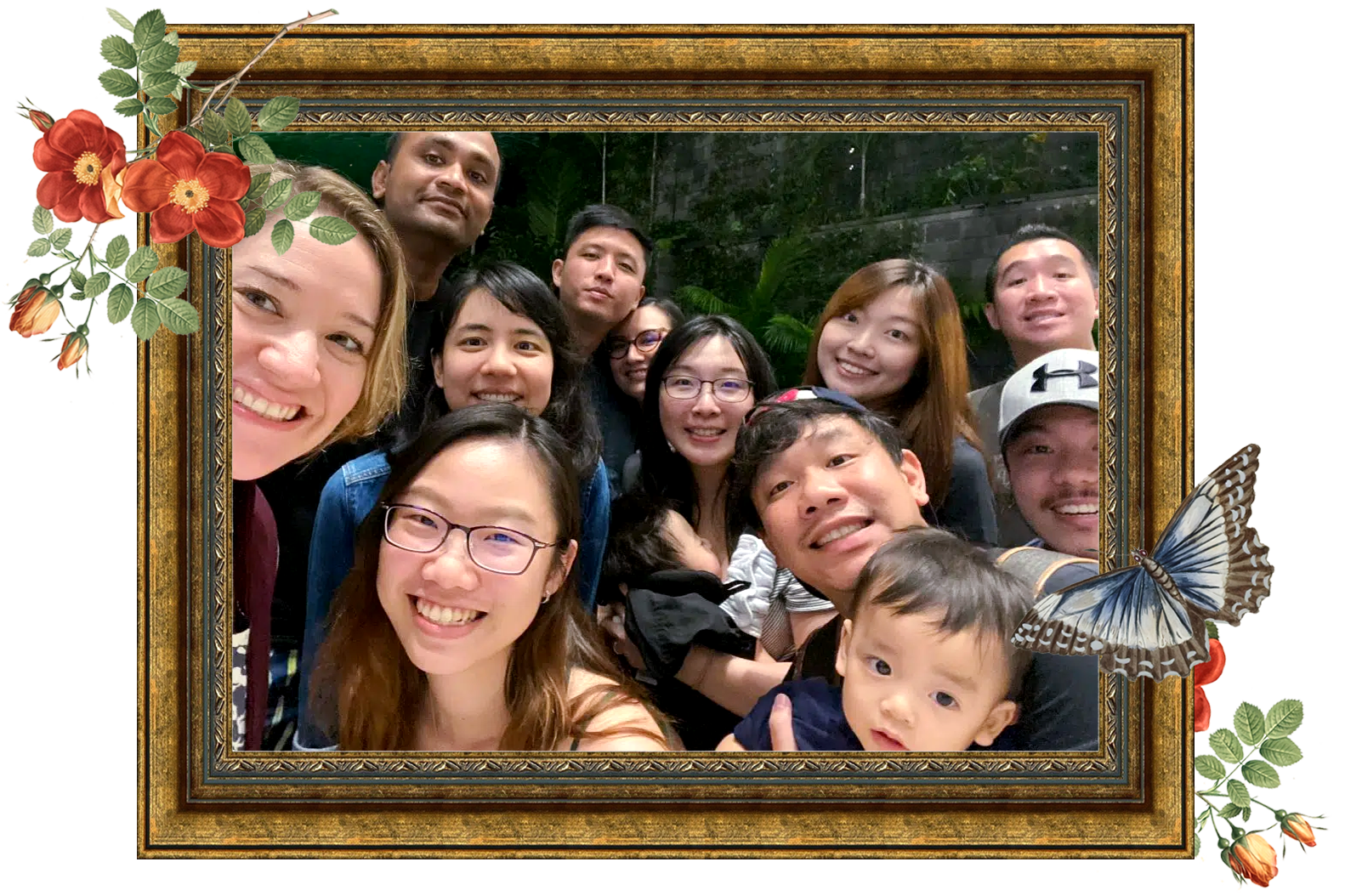
“I saw how sincerely each person in the group shared their deep struggles, listened to and encouraged each other as they carried each other’s burdens.”
The whole experience changed Peixin’s view of Christians.
Even then, she still wasn’t fully convinced that God is real.
And so she prayed: “If You are real, show me undeniable proof in all areas of my life – relationally, logically, experientially.”
Miracle heat
Although not willing to identify as a Christian, Peixin continued to attend church over the next few months.
Then, something miraculous happened.
One day, while listening to a sermon at church, Peixin suddenly felt a voice speak to her spirit.
“What more do you need?” it asked.
She instantly knew it was the voice of God.
“I was shocked and broke into a cold sweat,” Peixin said. “I was flooded with a sudden realisation that God was speaking directly to me.”
“Can I now call myself a Christian?”
In that moment, she looked back on how her life had gradually changed since exploring the faith.
Relationally, she saw how her bond with Daniel and others had developed in an organic and loving manner.
Logically, she knew the Christians she had met did not mindlessly “follow things that are illogical or unreasonable”.
Instead, most were grounded and pragmatic people who stayed open to matters spiritual.
Peixin knew these things to be true.
She then asked herself a life-changing question: “Can I now call myself a Christian?”
She said: “As soon as I asked that, I suddenly knew that God was real and He exists.”
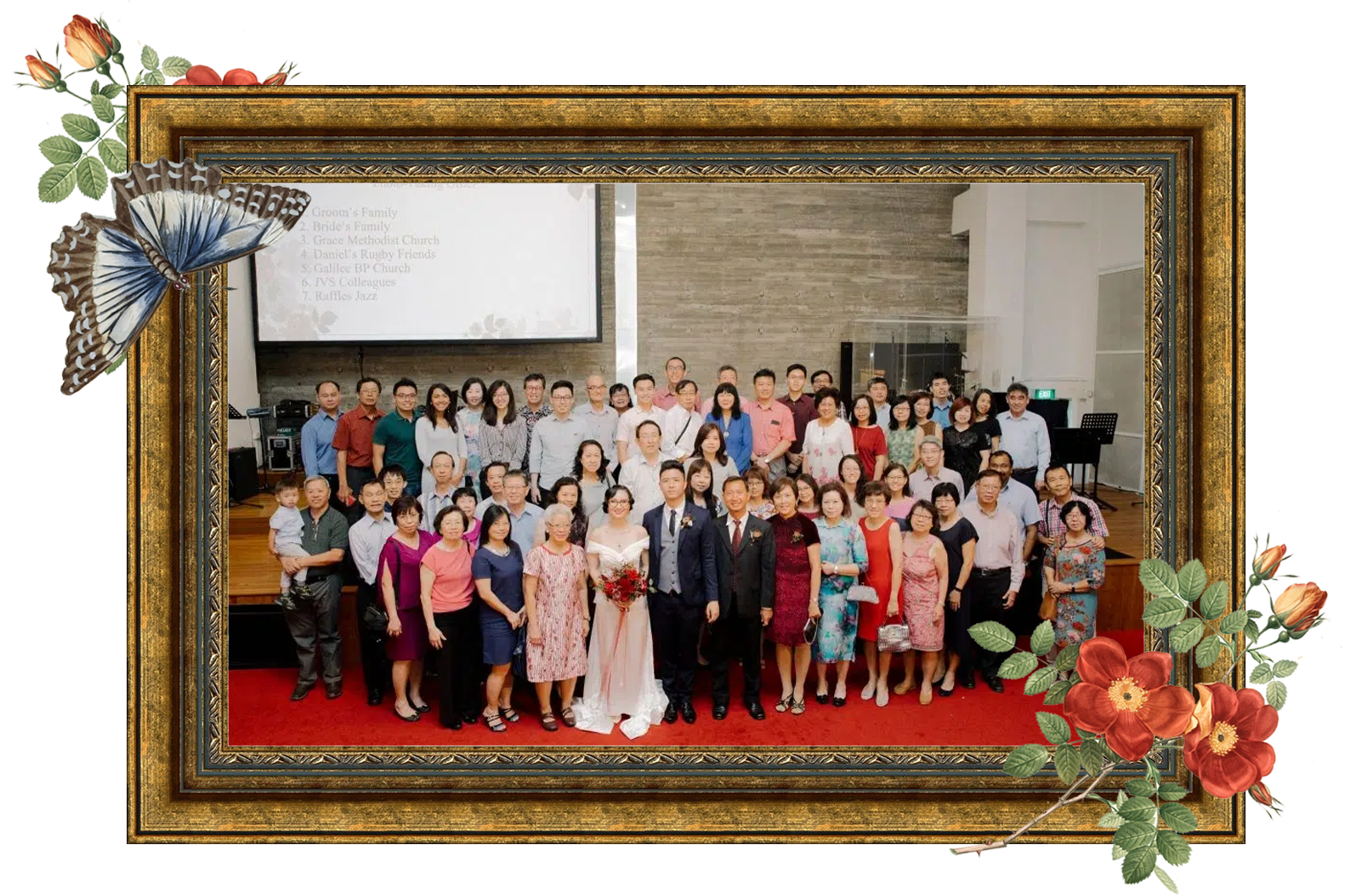
God also gave her the experiential proof she needed.
“I started to feel an amazing warm sensation from inside my chest that flowed through my limbs,” Peixin said. “I’d never felt anything like that before!”
“It was just pure heat. I felt a physical bubbling in my stomach that made me just want to jump up and scream, ‘I believe!’
“Experiencing God in that way helped me make that jump into faith. It made my relationship with Him real.”
But this was only the beginning.
Crying in her car
Though she now believed in God, Peixin’s heart was still burdened by years of striving to prove her worth to others.
Everything came to a breaking point during a gig in 2019.
“I felt like I’d sold my soul to play shows that brought me no creative fulfilment.”
“The band and I were introduced and everyone in the audience clapped,” said Peixin. “But when we went onstage, there was no audio.”
The technical hiccup led to a long silence and Peixin standing awkwardly on stage. She then saw people turn back to their food as chatter filled the room again.
“I wanted to crawl into a hole and hide,” said Peixin. “I felt so embarrassed and humiliated.”
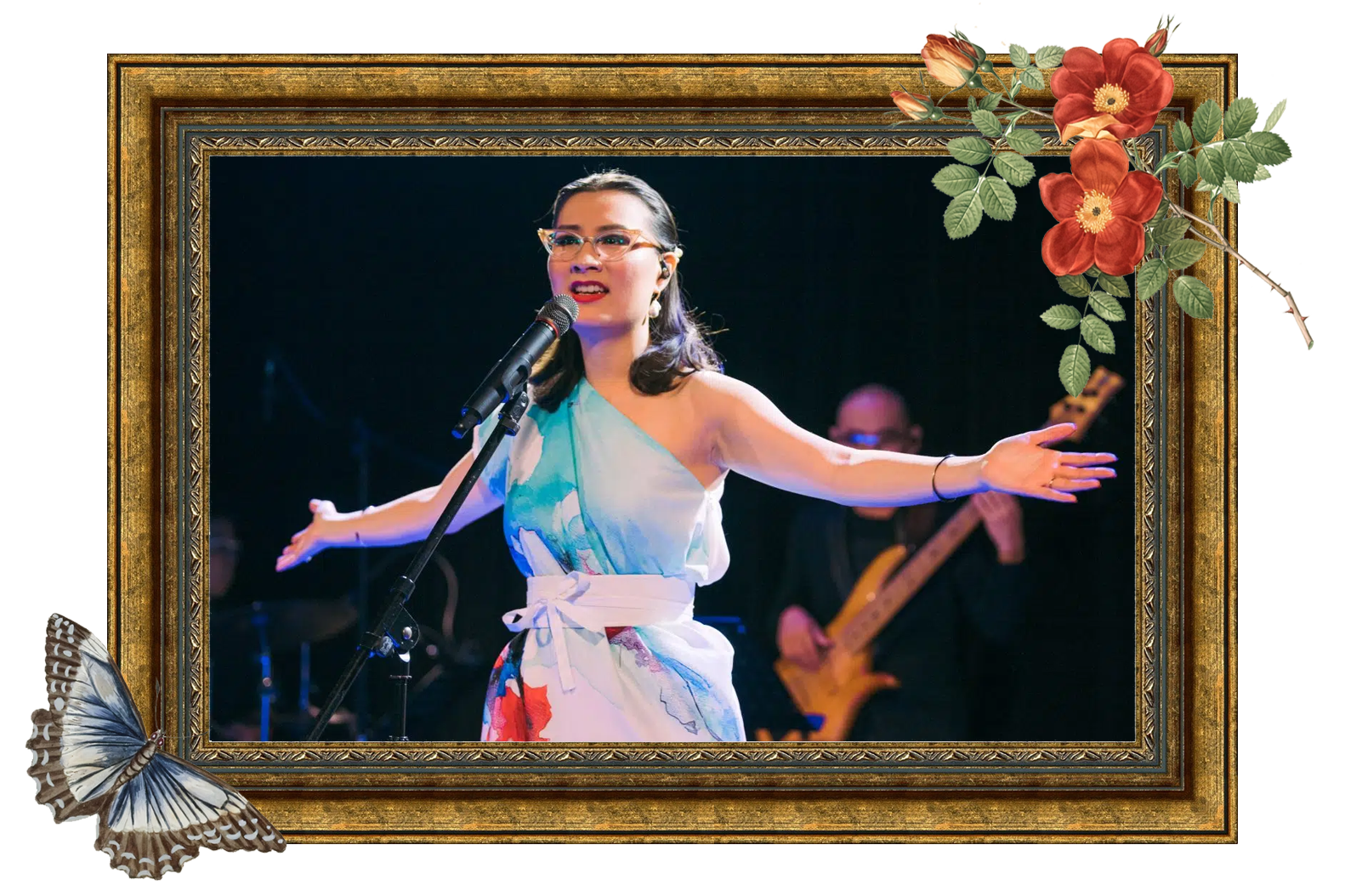
That night in her car, she broke down in tears.
Frustration spilled over as she grappled with thoughts that she was making no impact with her music.
“I was trying so hard to prove myself with my music. But really, I felt like I’d sold my soul to play shows that brought me no creative fulfilment.
“I think I was also scared of making new music, releasing it and failing,” she admitted.
In that moment of brokenness, Peixin cried out to God.
“That was when I felt Him say gently but firmly to me, ‘It’s time’.”
She knew God was referring to all the things she’d be trying to run away from.
This included writing original songs and embracing her unique identity as a singer – without the desperate need for external validation.
Songwriting with a new partner
This encounter spurred Peixin to address her insecurities. But it was not without its obstacles.
In 2020, when COVID-19 hit the world and Singapore went into the Circuit Breaker, live shows came to a standstill for performers like Daniel and Peixin.

With time on her hands, Peixin decided to get back into songwriting.
“But as I sat at my keyboard alone in my room, nothing came to me,” said Peixin. “I felt like a failure and a fraud.
“Here I was, supposedly a full-time musician. But I couldn’t even write a song.”
Suddenly, amid her spiral of self-criticism, God once again spoke to Peixin. She felt Him ask: “Why haven’t you surrendered this to Me?”
Feeling God’s love, Peixin made the choice to let go of her need for control and allow Him to work through her.
“So I asked God, ‘Please be my co-writer’. And right there and then, I just started writing.”
As words and melody began to flow, the song “Into the Blue” was born and Peixin’s self-doubts faded away.
“It’s the song I share with people today whenever I tell them about how I learnt to surrender my music and my life to God, one small step at a time,” she said.
Noted, with thanks
As days passed, God continued to encourage Peixin to trust Him.
In December 2020, she was overwhelmed by the work she needed to do on her new web series, A Song a Day, which had the support of the government.
In each episode, she collaborated with different songwriters to write a new song.
“It was my first time producing a YouTube web series,” said Peixin. “I had to do so much prep work, coordinate the filming team and the artistes, overlook the studio recording and everything else.”
But amid her mountain of stress, something miraculous happened.
“A friend messaged me out of the blue,” said Peixin. “He said he had a vision from God for me.”
He saw Peixin going down a pathway. She reached a giant note and tried to climb over it on her own.
“My friend told me that the vision was about me trying to grapple with my work through my own strength and effort,” said Peixin. “But God was saying ‘I will do it for you, child.'”
Peixin knew that this vision had to be from God: It was similar to the animation she’d been working on for A Song a Day. In it, a caricature of herself moves down a pathway of musical notes.
“There was no way my friend could have known about the animation,” said Peixin. “Only the animator and I knew the storyboard. And the series wasn’t even released yet!”
Peixin realised that God was again teaching her to surrender her stress to Him, bit by bit.
“I felt so thankful and so relieved because I knew I didn’t have to face everything on my own anymore,” said Peixin. “God is with me, working alongside me always.”
This incident, among others, helped her to embrace the idea of making music not to impress others, but as a means of expressing her love for God.
“That was the beginning of me pursuing music as a means of talking about God. I started to be more public about my faith,” she said.
A new awakening
More doors started to open for Peixin to explore music as a form of worship.
On top of singing at church, she was invited to train as a worship leader at Awaken Generation, a Christian music mentorship school based in Singapore.
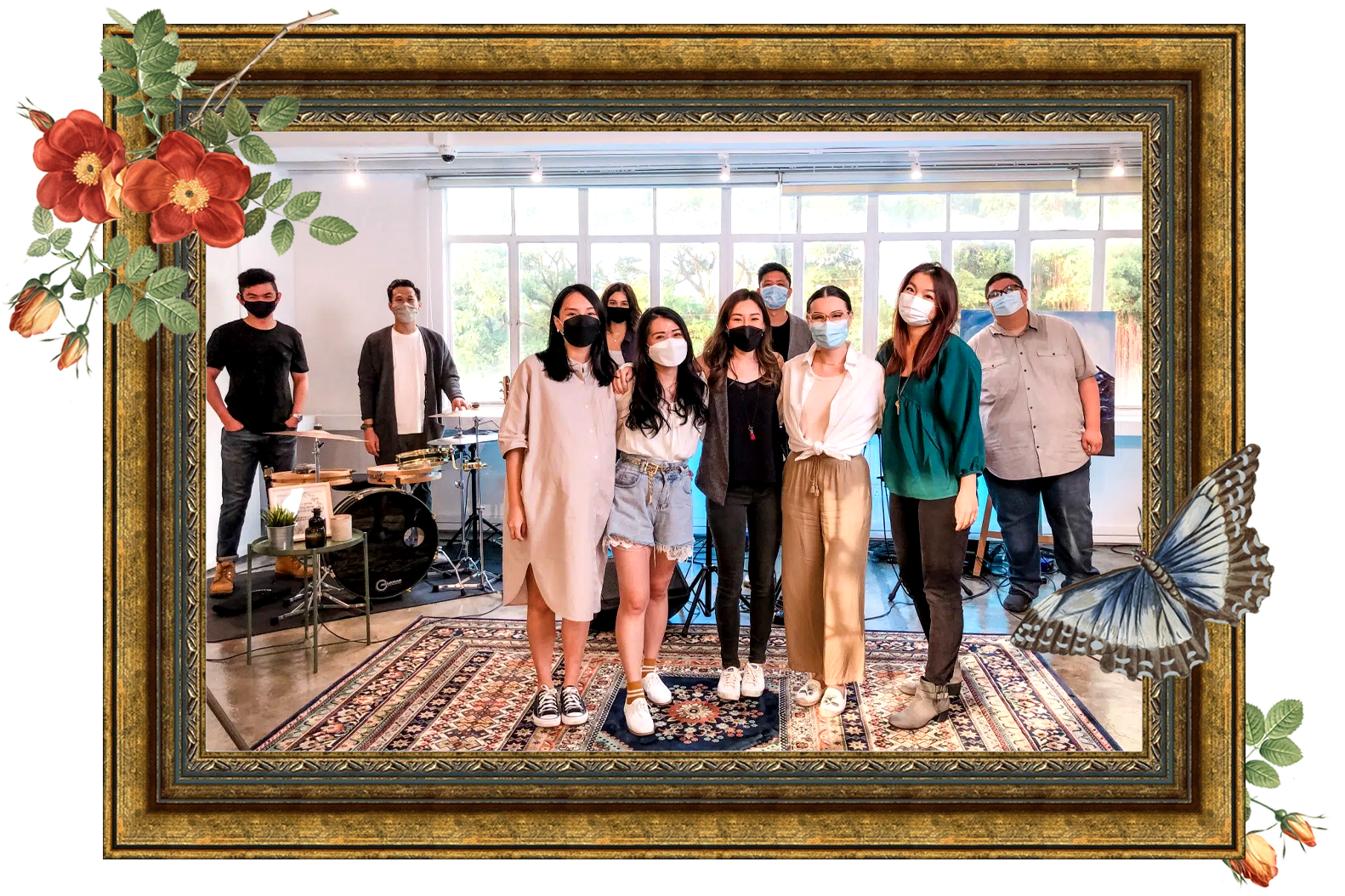
Peixin decided to sign up for worship training classes in Mandarin, a language she is less fluent in than English. She felt initially insecure – but, this time, only for a moment.
“These days I realise that the more inadequate I feel, the more I can give glory to God,” said Peixin. “Because I’m only able to do it by His strength, not mine.”
Peixin went on to perform and co-produce “仰望” (Look to You) with Awaken Generation. She now also shares a studio space with them.
More recently in July 2022, a sponsor paid for Peixin and Daniel to attend a five-day training course at Bethel Music Worship School in the US.
Today, Peixin “makes music from approval, not for approval”. Social media stats are no longer her focus.
But she admitted: “I can still slip back into that default mode if I’m not careful and diligent about my walk with God.”
“God has proven that He is real so many times in my life,” said Peixin. “He is so good and is really the God of the impossible. Where I am today is testament to that.”
This article was first published on Stories of Hope.
- Where, what or who are you seeking validation from?
- What does the Bible say about your worth in Him?
- Are you trying to do things on your own strength? What do you need to surrender to God today?


